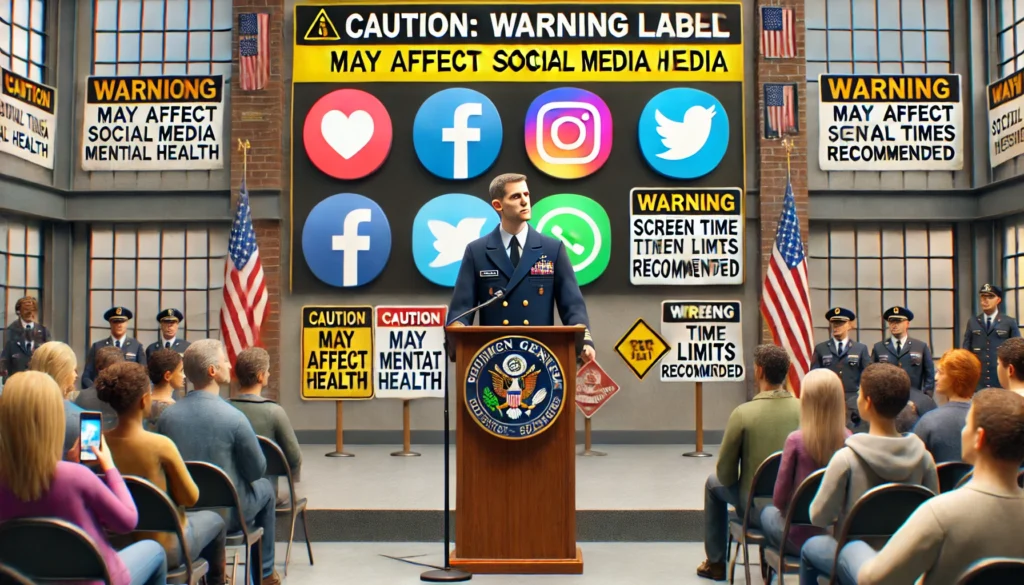In a recent opinion article for The New York Times, Surgeon General Vivek Murthy has called for the implementation of mandatory warning labels on social media platforms, alerting users about the mental health risks posed to teenagers. Murthy compared these proposed labels to the existing warnings found on tobacco and alcohol products, which have been proven effective in raising awareness and influencing consumer behavior.
The Surgeon General emphasized the urgent nature of the mental health crisis among young people, identifying social media as a significant contributor to the problem. “It is time to require a surgeon general’s warning label on social media platforms, stating that social media is associated with significant mental health harms for adolescents,” Murthy wrote. He added that such a warning label would serve as a regular reminder to parents and adolescents that the safety of social media has not been conclusively established.
Murthy cited alarming statistics to support his stance, noting that the rates of teenage depression have skyrocketed over the past decade, coinciding with the explosive growth of social media. Adolescents who spend more than three hours per day on social media platforms are twice as likely to experience anxiety and depression. On average, teens spend nearly five hours a day on these platforms, with almost half reporting that social media negatively impacts their body image.
In addition to the proposed warning labels, Murthy called on Congress to enact legislation aimed at protecting young people from online abuse, exposure to extreme violence, and sexual content. He also advocated for restrictions on social media companies’ collection of sensitive data from children and urged them to limit potentially harmful features such as push notifications, autoplay, and infinite scroll. Furthermore, Murthy emphasized the need for social media platforms to share their data on health effects with the public and undergo independent safety audits to ensure transparency and accountability.
While acknowledging the responsibility of social media companies, Murthy also placed some of the onus on parents to safeguard their children from the negative effects of social media. He advised parents to delay allowing their children to use social media until after middle school and to establish phone-free zones during meals and social gatherings. Schools were also encouraged to keep classrooms free of phones to minimize distractions and potential harm.
Murthy questioned society’s failure to respond to the widespread and urgent harms posed by social media, drawing comparisons to the dangers associated with unsafe cars, planes, or food. He emphasized that these harms are not a result of poor parenting or lack of willpower but rather the consequence of introducing powerful technology without adequate safety measures, transparency, or accountability.
The Surgeon General’s call for action highlights the growing concern over the impact of social media on the mental health of young people. As the debate surrounding the regulation of social media continues, Murthy’s proposed warning labels and legislative recommendations aim to prioritize the well-being of adolescents in an increasingly digital world. The success of these measures will depend on the cooperation of social media companies, policymakers, and parents in creating a safer online environment for the next generation.



